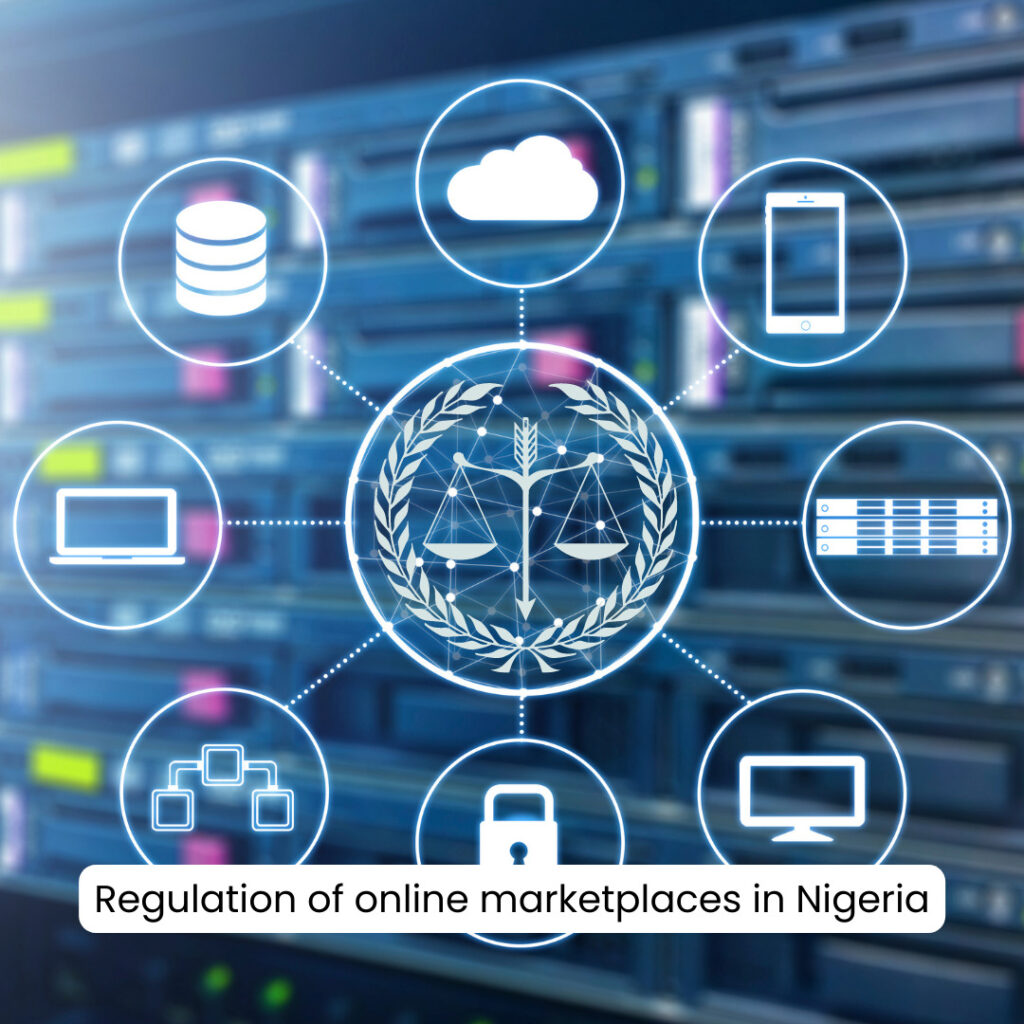Regulation of Online Marketplaces in Nigeria
The rapid growth of e-commerce has transformed the way people buy and sell goods and services, giving rise to online marketplaces that connect buyers and sellers across geographical boundaries. In Nigeria, a nation with a dynamic digital landscape and a vibrant entrepreneurial spirit, the regulation of online marketplaces has become an essential consideration. Striking a balance between fostering innovation and ensuring consumer protection is crucial in this evolving digital economy. In this article, we delve into the realm of online marketplace regulation in Nigeria, exploring its significance, key considerations, challenges, and implications for both businesses and consumers.
The Rise of Online Marketplaces
Online marketplaces have emerged as virtual platforms where a diverse range of products and services are offered by multiple sellers to a vast pool of potential buyers. These platforms have democratized commerce, allowing businesses of all sizes to reach a global audience and consumers to access a wide array of products from the comfort of their homes.
The Significance of Regulation
The regulation of online marketplaces holds significant importance for several reasons:
- Consumer Protection: Regulation ensures that consumers are safeguarded from fraudulent activities, counterfeit products, and unfair business practices.
- Fair Competition: Guidelines prevent monopolistic practices, promote fair competition among sellers, and foster an environment where innovative startups can thrive.
- Taxation and Revenue: Proper regulation enables the collection of taxes, ensuring that the government receives revenue from e-commerce transactions.
- Data Privacy and Security: Regulation addresses data privacy concerns, safeguarding consumers’ personal information from misuse.

Key Considerations in the Nigerian Context
Regulating online marketplaces in Nigeria involves several key considerations:
- Legal Framework: Establishing a clear legal framework that defines the responsibilities and obligations of online marketplace operators and sellers is essential.
- Consumer Rights: Ensuring that consumer rights are protected, including provisions for returns, refunds, and dispute resolution, enhances consumer confidence.
- Vendor Verification: Implementing mechanisms for verifying the authenticity and legitimacy of sellers on the platform is crucial to prevent fraudulent activities.
- Digital Payments: Addressing the challenges and opportunities of digital payment methods and ensuring secure transactions is paramount.
Challenges and Opportunities
The regulation of online marketplaces in Nigeria presents both challenges and opportunities:
- Jurisdictional Complexity: Online marketplaces often operate globally, requiring careful consideration of jurisdictional challenges and harmonization of regulations.
- Emerging Technologies: The rapid evolution of e-commerce technologies demands regulations that remain adaptable to changing digital landscapes.
- Enforcement: Ensuring consistent enforcement of regulations in the digital realm can be complex, particularly when dealing with cross-border transactions.
- Innovation and Entrepreneurship: Proper regulation can encourage digital entrepreneurship and innovation by providing a secure environment for business operations.
Shaping the Future
The future of regulating online marketplaces in Nigeria holds promise:
- Collaboration: Collaborative efforts between government bodies, industry stakeholders, and technology experts can lead to effective and balanced regulation.
- Education and Awareness: Educating both consumers and sellers about their rights and responsibilities within online marketplaces fosters responsible and ethical commerce.
- Technological Solutions: Embracing technological solutions such as AI-driven fraud detection and secure payment gateways can enhance marketplace security.
- Flexible Regulation: Developing flexible regulations that can adapt to evolving digital market trends ensures that the regulatory environment remains relevant.
Conclusion
The regulation of online marketplaces in Nigeria is a multifaceted endeavor that requires a comprehensive approach. By creating a legal framework that promotes fair competition, protects consumer rights, and fosters innovation, Nigeria can create a digital marketplace ecosystem that empowers both businesses and consumers. As Nigeria continues to embrace the digital economy and e-commerce continues to thrive, a balanced and forward-thinking approach to online marketplace regulation will contribute to a digital future that is inclusive, innovative, and supportive of economic growth.
